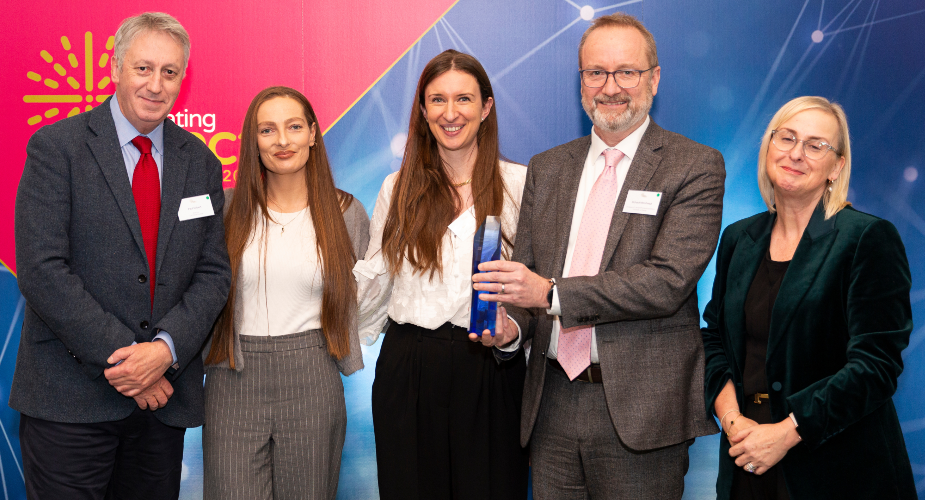National award for researchers working to help Post Office Scandal victims find justice

The Post Office Scandal Project team are Professor Richard Moorhead, Professor Rebecca Helm and Dr Sally Day from the University of Exeter, Dr Karen Nokes, from University College London, and Paul Gilbert, from LBC Wise Counsel. photo credit: Anthony Sajdler
Their work has ensured professional misconduct by lawyers is a primary focus of the ongoing public inquiry, demonstrated the devastating mental health impact of unfair accusations on sub-postmasters, and aided their search for compensation and justice.
The team’s research into why innocent people plead guilty to crimes they did not commit helped lay the groundwork for the blanket exoneration for all convicted sub-postmasters rather than forcing them to each battle a complex appeal process to prove their innocence.
The experts won “outstanding societal impact” category at the Economic and Social Research Council’s Celebrating Impact Prize 2024. The prizes recognises and rewards ESRC-funded researchers who have achieved impact through exceptional research, knowledge exchange activities, collaborative partnerships and community engagement.
The Post Office Scandal is one of the largest miscarriages of justice in modern English history. Current estimates suggest as many as 1,000 victims were wrongly prosecuted, many more lost their livelihoods, and thousands had money taken from them. For two years the research team have recorded information about the impact on those involved through a survey, research interviews and analysis of Inquiry evidence.
The research team have published research demonstrating lawyer misconduct and incompetence as a central cause of the scandal and the impact of the extraordinary mental health harms of victims caused by false accusations and convictions of debts and thefts.
This has assisted in the claimants’ arguments to the inquiry and for compensation.
It also promoted the Legal Services Board to develop a new strategy on professional ethics leading to better regulation to reduce the likelihood of similar problems arising again, and for the inquiry to lift legal professional privilege so the role of lawyers could be properly scrutinized.
The team’s research on the mental health impact of false accusation has been at the forefront of the Horizon Compensation Advisory Board’s deliberations and recommendations.
The ESRC Celebrating Impact Prize is now in its 12th year. Each category winner received a £10,000 prize to be spent on furthering knowledge exchange, public engagement, or other communications activities to promote the impact of their research.
The Post Office Scandal Project team are Professor Richard Moorhead, Professor Rebecca Helm and Dr Sally Day from the University of Exeter, Dr Karen Nokes, from University College London, and Paul Gilbert, from LBC Wise Counsel. They are supported by an esteemed advisory board.
Professor Moorhead said: “We are very proud of our work as a team. High quality, impactful social science on law and lawyers has never been so important. But we know our secret weapon is nothing to do with us. It is the power of an incredible story. Working with the subpostmasters and -mistresses is the privilege of a lifetime; their resilience and decency in the face of disgraceful individual, institutional and legal failings will be teaching governments, corporates, lawyers, and courts, lessons for many years to come. We try to bring high quality thinking and substantial evidence to this world, but human decency is what will make the difference.”
Executive Chair Stian Westlake said: “The projects featured in this year’s ESRC Celebrating Impact Prize 2024 demonstrate how social science can have a real effect on peoples’ lives both in the UK and abroad.
“They encompass some of the most pressing issues of our times, helping the victims of institutional scandals and potentially showing us the way to more fulfilling working lives.
“Together, they show how social sciences can inform the public debate and change the world.”



